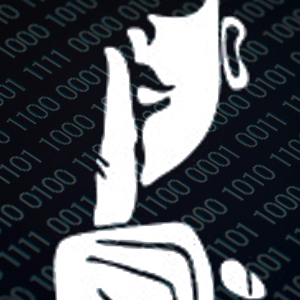 NEWS
NEWS
 NEWS
NEWS
 NEWS
NEWS
![]() Whistleblowers and leaks mean more than ever in this era of information overload and information security. The intelligence community is fundamentally about two things: knowing true things and spreading untrue things so that rivals know less true things. The Internet has changed fundamentally not just how information is gathered—but how personal information is produced and shared.
Whistleblowers and leaks mean more than ever in this era of information overload and information security. The intelligence community is fundamentally about two things: knowing true things and spreading untrue things so that rivals know less true things. The Internet has changed fundamentally not just how information is gathered—but how personal information is produced and shared.
What we have learned from NSA whistleblower Edward Snowden may be far less important than what we don’t know about what’s going on. If you haven’t read about it yet: it’s time to catch up on the NSA’s spying presence with Verizon and the PRISM data-mining program.
The work of the National Security Agency using powerful communication collection equipment to spy on the American people is bright in the minds of the privacy conscious right now. Especially with lots of information hitting the media about the collection of metadata from carrier phone calls (with the Verizon reveal) and further observations about PRISM. We live in an era where it’s almost literally trivial for any large infrastructure holder to scoop up the digital footprint of anyone who interacts with the Internet and the activity of NSA hasn’t come as much of a surprise: what is troublesome, however, is the shroud of secrecy and denials.
From the advent of global communication it’s been obvious that it would lead to an equally global erosion of privacy. Our cultural use of Twitter, Facebook, and social media means that people are constantly emitting even their most private thoughts; and with the event-horizon of the Internet of Things people will have devices that are always connected, always talking, and opening up our lives to friends and family—but equally scrutiny by governments and neighbors.
However, just became we expect that our privacy is eroded doesn’t mean that our expectation of privacy from certain entities—corporations and governments—can be violated willy nilly. The reason that conspiracy theory has such a pull on the heartstrings of the human heart sits at the crux of why cyberpunk and science fiction is so much fun: great power (the control of huge infrastructure) indeed entails the expectation of great responsibility.
Why whistleblowers and leaks are so important
This is why whistleblowers such as NSA’s Edward Snowden and the use of sites such as Wikileaks has become ever-more-important. There is an inherent power imbalance between governments and citizens in that a government (or even corporation) is highly organized social structure with logistical support, resources, and the ability to act on that. In a democracy like the United States the people decide what agencies of their government can and cannot do and there’s a constant tug-of-war between privacy, security, and convenience.
When a government agency acts out, the people must know before the population (the demos in the democracy) can do something about it.
And this is why security blogger Bruce Schneier argues that whistleblowers and leaks are necessary for keeping organizations honest. Although the idea that the NSA (or anyone else, even corporations) have been spying on US citizens for a long time isn’t something new; it’s the scope, definition, and disposition of that spying that’s the problem. If an organization with access to information about people who contract with it does not reveal how it uses that information in a substantive way it’s acting immoral and untrustworthy.
Edward Snowden is nothing less than a hero in this story.
To understand why, we need only look at how broad and wide the reaction has been from businesses such as Facebook, Google, Apple—and even from President Obama on the subject of domestic spying. The information age and a fiction media (the ubiquity of cameras) has jaded the population to the fact that every move we make can be recorded and collated; but when we contract with a government or a business we instill in them a legacy of trust and this wicked secrecy interrupts that trust in a way that cuts deep.
THANK YOU